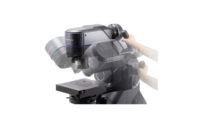Why do we remember the past, and not the future? It’s an interesting question in that it is thought provoking. It’s also a perplexing question with no tangible, concrete answer, but many physicists would say we should be amazed at how much of the question we can answer. The question stems from, or at least often follows, Albert Einstein’s famous utterance, "Time is an illusion, although a stubbornly persistent one.”
We can even go as far as to replace the notion of memory with that of knowledge. Knowledge, after all, is facts, information, and skills acquired by a person through experience or education, i.e. the memories of that experience and education. So now the question becomes, "What if we had knowledge of the future?”
If we follow the countless stories of time travel and clairvoyance, knowledge of the future could inspire our humanity, or our greed. If given the opportunity to travel back in time, would you travel back to the 1930s and assassinate Adolf Hitler, or would you travel back to January of 1969 and place a bet on the underdog New York Jets to beat the Baltimore Colts in Super Bowl III? Be honest!
No matter your answer, the question points to the accuracy of an old, but particularly apt adage—Knowledge is power!
"By the way, I would kill Hitler AND bet on the Jets! D’uh.”
The Art of War—an ancient Chinese military treatise on the strategy, and philosophy, of the battlefield—by Sun Tzu purportedly makes 28 separate references to knowledge, including "If you know the enemy and know yourself, you need not fear the result of a hundred battles.”
As long as we are talking philosophy, one of my favorite quotes is, "Confidence is good. Facts are better, know what you are walking into.” It’s attributed to a fictional character named Chuck McGill, a lawyer on Better Call Saul, but it’s apt and I like it!
In the real world and on the "battlefields” of good business, particularly regarding the field of quality, knowledge lies in training. As contributing editor Genevieve Diesing writes, "As the pandemic and advances in technology impact the field, education and training remain paramount — especially for newcomers.”
So read Genevieve’s article, "How a Shrinking Workforce Affects Testing and Inspection in NDT,” and check out the results of our annual Spending Survey in this month’s Quality.
By the way, I would kill Hitler AND bet on the Jets! D’uh.
Enjoy and thanks for reading!







